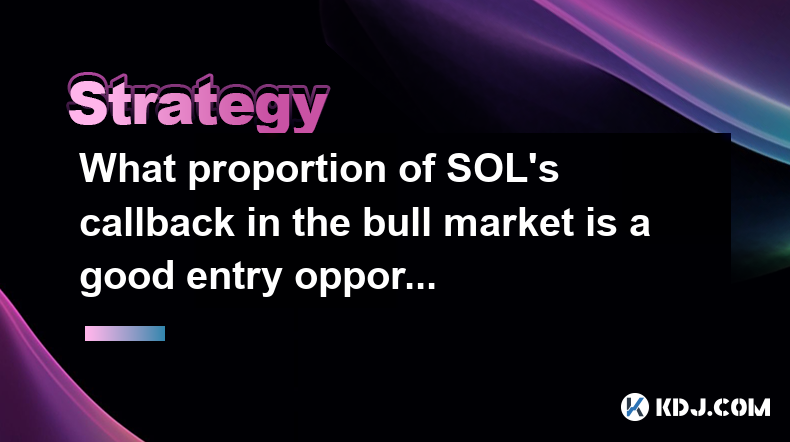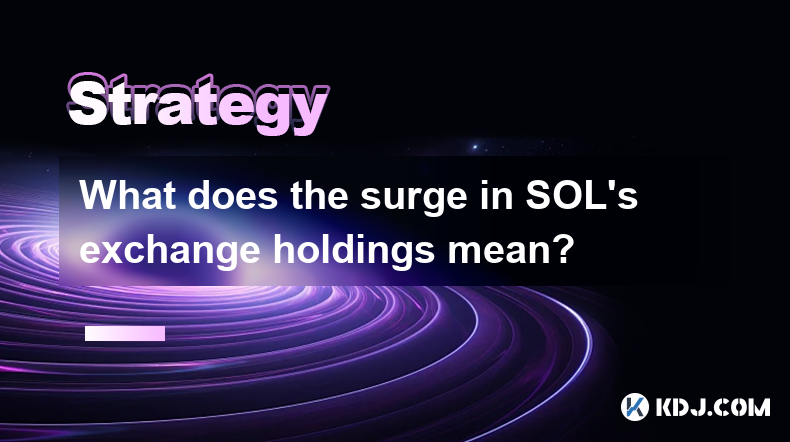-
 Bitcoin
Bitcoin $88,555.6766
1.18% -
 Ethereum
Ethereum $1,626.4043
-1.22% -
 Tether USDt
Tether USDt $0.9998
-0.01% -
 XRP
XRP $2.1018
-1.27% -
 BNB
BNB $605.8750
0.04% -
 Solana
Solana $140.3422
0.04% -
 USDC
USDC $0.9999
0.00% -
 Dogecoin
Dogecoin $0.1643
1.27% -
 TRON
TRON $0.2481
1.05% -
 Cardano
Cardano $0.6359
-1.63% -
 Chainlink
Chainlink $13.3216
-2.53% -
 UNUS SED LEO
UNUS SED LEO $9.1797
-2.79% -
 Avalanche
Avalanche $20.3681
-2.52% -
 Stellar
Stellar $0.2473
-4.43% -
 Sui
Sui $2.3043
2.50% -
 Shiba Inu
Shiba Inu $0.0...01257
-1.15% -
 Toncoin
Toncoin $2.9429
-3.48% -
 Hedera
Hedera $0.1738
0.16% -
 Bitcoin Cash
Bitcoin Cash $347.0587
1.49% -
 Hyperliquid
Hyperliquid $18.2576
-0.35% -
 Litecoin
Litecoin $79.8456
-0.89% -
 Polkadot
Polkadot $3.7809
-4.73% -
 Dai
Dai $0.9999
-0.01% -
 Bitget Token
Bitget Token $4.4439
-0.50% -
 Ethena USDe
Ethena USDe $0.9991
-0.01% -
 Pi
Pi $0.6313
-0.96% -
 Monero
Monero $216.2035
0.57% -
 Pepe
Pepe $0.0...08138
3.46% -
 Uniswap
Uniswap $5.3889
-1.68% -
 OKB
OKB $50.9281
-0.23%
How to deal with the uncertainty caused by network forks in Ethereum transactions?
When preparing for network forks, stay informed, review fork details, create wallet backups, and consider your asset distribution, especially if your assets are held on an exchange.
Feb 25, 2025 at 07:30 pm

Key Points
- Understanding Network Forks
- Preparing for Potential Forks
- Mitigating Risks During Forks
- Post-Fork Actions
- FAQs
Understanding Network Forks
Network forks occur when a blockchain undergoes a software upgrade, leading to a split into two distinct chains:
- Hard fork: Incompatible with the previous version, requiring all nodes to upgrade to continue validating transactions.
- Soft fork: Backward compatible, allowing nodes on the old version to continue operating, but blocks created on the new version may be invalid to older nodes.
Hard forks often create new cryptocurrencies, while soft forks typically introduce minor upgrades or security patches.
Preparing for Potential Forks
- Stay informed: Follow reputable news sources and community forums to monitor fork announcements and updates.
- Review fork details: Carefully read the fork specifications to understand the changes and potential impact.
- Backup wallet: Create a backup of your Ethereum wallet before any fork occurs to protect your funds.
- Consider asset distribution: If you hold coins on an exchange, determine whether the exchange supports the fork. If not, you may need to move your assets to a supported wallet.
Mitigating Risks During Forks
- Avoid transactions during forks: Forks can disrupt the network, making transactions unreliable. If possible, delay transactions until the fork has been fully implemented.
- Use a reputable exchange: Trusted exchanges typically handle forks professionally, providing timely updates and supporting user funds.
- Keep software updated: Maintain updated blockchain software to ensure compatibility with the post-fork chain.
Post-Fork Actions
- Confirm the established chain: Once the fork has occurred, verify which chain has gained the majority of support.
- Move assets if necessary: If your assets are on the losing chain, you may need to move them to the new chain to access their value.
- Follow exchange instructions: If you hold coins on an exchange, follow their instructions on how to handle the fork and recover your assets.
FAQs
What happens if I have coins on both chains after a fork?
- You will have an equivalent amount of coins on both chains. If the new chain becomes more valuable, you may choose to sell your coins on it.
Can I undo a transaction made during a fork?
- It is generally not possible to undo transactions once they have been confirmed on a blockchain.
What if my exchange does not support the fork?
- You may have to move your assets to a supported wallet to access the forked coins.
Will Ethereum 2.0 require a fork?
- Yes, Ethereum 2.0 will involve a hard fork to transition the network to a proof-of-stake consensus mechanism.
What are the potential risks of network forks?
- Forks can disrupt the network, leading to transaction delays, lost funds, and security vulnerabilities. It is important to prepare for forks and mitigate risks.
Disclaimer:info@kdj.com
The information provided is not trading advice. kdj.com does not assume any responsibility for any investments made based on the information provided in this article. Cryptocurrencies are highly volatile and it is highly recommended that you invest with caution after thorough research!
If you believe that the content used on this website infringes your copyright, please contact us immediately (info@kdj.com) and we will delete it promptly.
- U.S. Digital Asset Firms Are Reportedly Considering Applying for Bank Charters and Licenses
- 2025-04-22 15:40:12
- OM Slides Deeper as Massive Token Burn Falls Flat
- 2025-04-22 15:40:12
- Ethereum Crashes, Its Share of the Overall Virtual Asset Market Fell Below 7%
- 2025-04-22 15:35:12
- Dogecoin Community Celebrates Dogeday 4/20, Buoyed by ETF Filing Buzz
- 2025-04-22 15:35:12
- ZetaChain Integrates Arbitrum to Offer Streamlined Universal App Usage
- 2025-04-22 15:30:12
- Deutsche Bank and Standard Chartered Are Expanding Their Crypto Operations in the United States
- 2025-04-22 15:30:12
Related knowledge

How to use trading volume to determine the buying and selling timing of BCH?
Apr 22,2025 at 04:14pm
Trading volume is a critical indicator that traders use to gauge the strength and direction of market trends, and it can be particularly useful when determining the buying and selling timing of Bitcoin Cash (BCH). By analyzing the trading volume, investors can gain insights into the market sentiment and make more informed decisions about when to enter o...

What proportion of SOL's callback in the bull market is a good entry opportunity?
Apr 22,2025 at 03:43pm
The question of what proportion of SOL's callback in a bull market represents a good entry opportunity is a nuanced one, requiring a deep dive into market dynamics, historical data, and risk management strategies. Let's explore this topic in detail. Understanding SOL and Bull MarketsSolana (SOL) is a high-performance blockchain platform known for its fa...

Can BCH's Willy indicator be bottomed out in the oversold area?
Apr 22,2025 at 02:56pm
Understanding the Willy IndicatorThe Willy indicator, also known as the Willy ratio, is a technical analysis tool used in the cryptocurrency market to assess the potential for a price reversal. It is calculated by dividing the current price of a cryptocurrency by its 200-day moving average. When the Willy indicator falls into the oversold area, it sugge...

What does the surge in SOL's exchange holdings mean?
Apr 22,2025 at 04:07pm
The recent surge in SOL's exchange holdings has sparked considerable interest and debate within the cryptocurrency community. SOL, the native token of the Solana blockchain, has seen a notable increase in the amount of tokens held on various cryptocurrency exchanges. This phenomenon can have several implications for the token's price, market sentiment, ...

What to do if SHIB's HODL wave indicator shows loose chips?
Apr 21,2025 at 03:07pm
If the SHIB's HODL wave indicator shows loose chips, it suggests that a significant portion of the SHIB holders are selling their tokens, potentially leading to increased volatility and a possible price drop. Understanding how to navigate this situation is crucial for any SHIB investor. This article will guide you through the steps to take when you noti...

Is it a risk that SHIB's derivatives position is 3 times that of the spot?
Apr 20,2025 at 12:35am
Is it a risk that SHIB's derivatives position is 3 times that of the spot? The cryptocurrency market is known for its volatility and high-risk nature, and Shiba Inu (SHIB) is no exception. One of the metrics that traders and investors closely monitor is the ratio of derivatives to spot positions. SHIB's derivatives position being three times that of the...

How to use trading volume to determine the buying and selling timing of BCH?
Apr 22,2025 at 04:14pm
Trading volume is a critical indicator that traders use to gauge the strength and direction of market trends, and it can be particularly useful when determining the buying and selling timing of Bitcoin Cash (BCH). By analyzing the trading volume, investors can gain insights into the market sentiment and make more informed decisions about when to enter o...

What proportion of SOL's callback in the bull market is a good entry opportunity?
Apr 22,2025 at 03:43pm
The question of what proportion of SOL's callback in a bull market represents a good entry opportunity is a nuanced one, requiring a deep dive into market dynamics, historical data, and risk management strategies. Let's explore this topic in detail. Understanding SOL and Bull MarketsSolana (SOL) is a high-performance blockchain platform known for its fa...

Can BCH's Willy indicator be bottomed out in the oversold area?
Apr 22,2025 at 02:56pm
Understanding the Willy IndicatorThe Willy indicator, also known as the Willy ratio, is a technical analysis tool used in the cryptocurrency market to assess the potential for a price reversal. It is calculated by dividing the current price of a cryptocurrency by its 200-day moving average. When the Willy indicator falls into the oversold area, it sugge...

What does the surge in SOL's exchange holdings mean?
Apr 22,2025 at 04:07pm
The recent surge in SOL's exchange holdings has sparked considerable interest and debate within the cryptocurrency community. SOL, the native token of the Solana blockchain, has seen a notable increase in the amount of tokens held on various cryptocurrency exchanges. This phenomenon can have several implications for the token's price, market sentiment, ...

What to do if SHIB's HODL wave indicator shows loose chips?
Apr 21,2025 at 03:07pm
If the SHIB's HODL wave indicator shows loose chips, it suggests that a significant portion of the SHIB holders are selling their tokens, potentially leading to increased volatility and a possible price drop. Understanding how to navigate this situation is crucial for any SHIB investor. This article will guide you through the steps to take when you noti...

Is it a risk that SHIB's derivatives position is 3 times that of the spot?
Apr 20,2025 at 12:35am
Is it a risk that SHIB's derivatives position is 3 times that of the spot? The cryptocurrency market is known for its volatility and high-risk nature, and Shiba Inu (SHIB) is no exception. One of the metrics that traders and investors closely monitor is the ratio of derivatives to spot positions. SHIB's derivatives position being three times that of the...
See all articles























































































